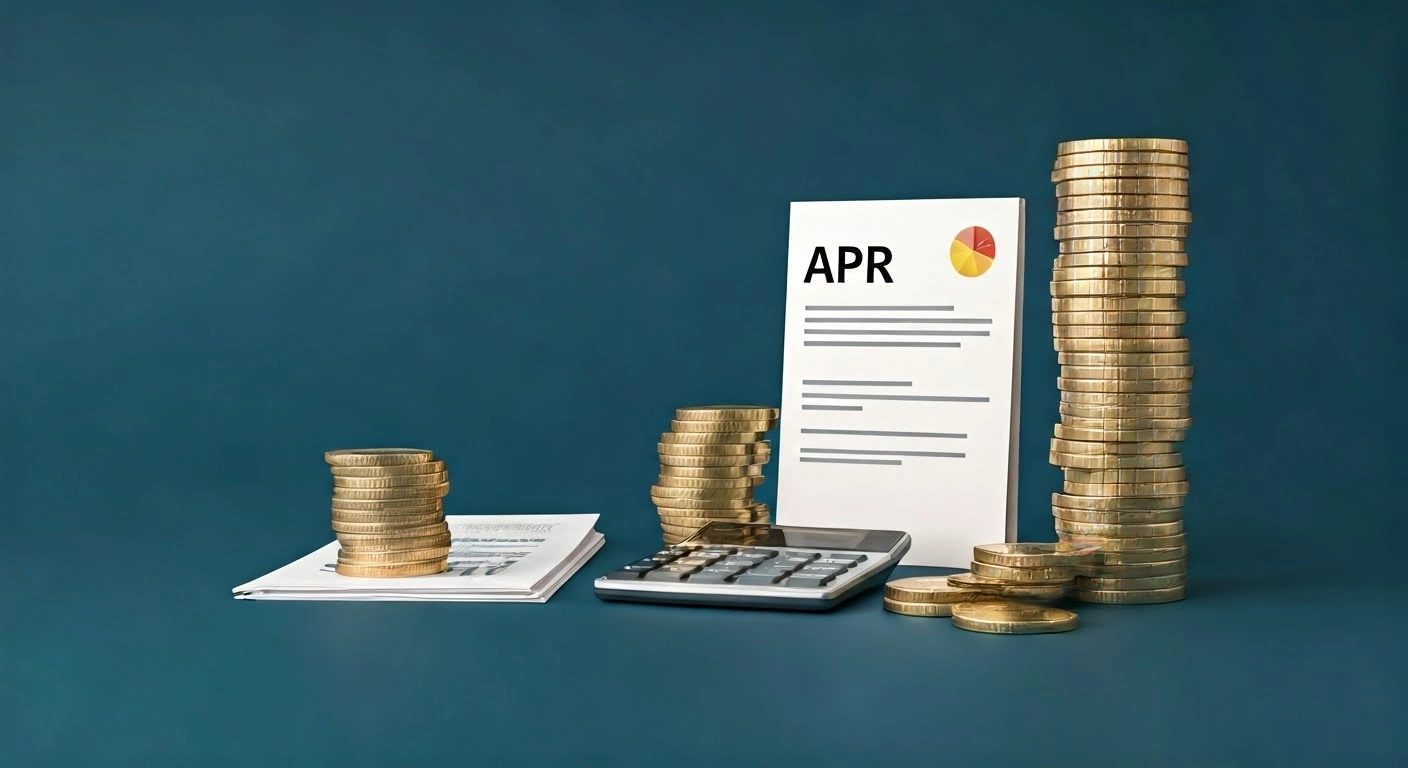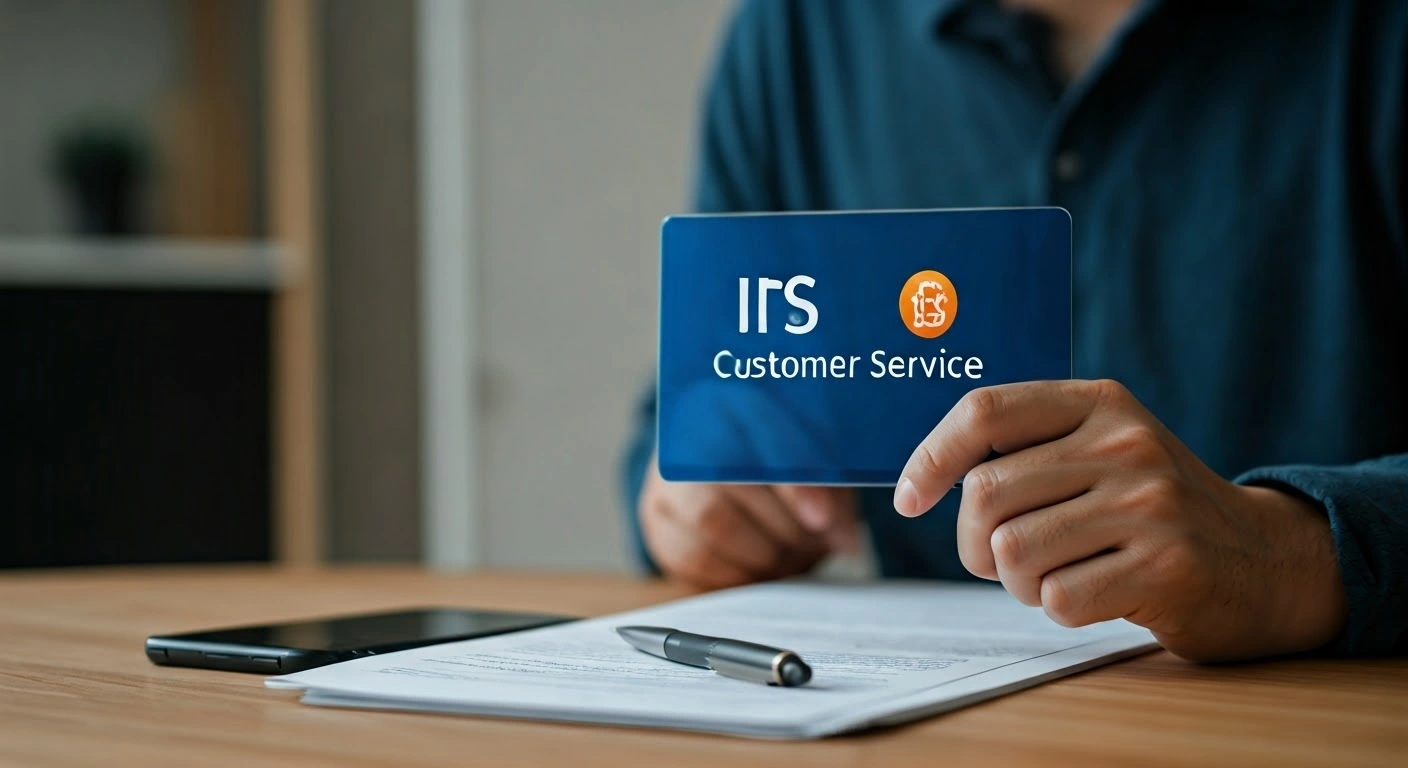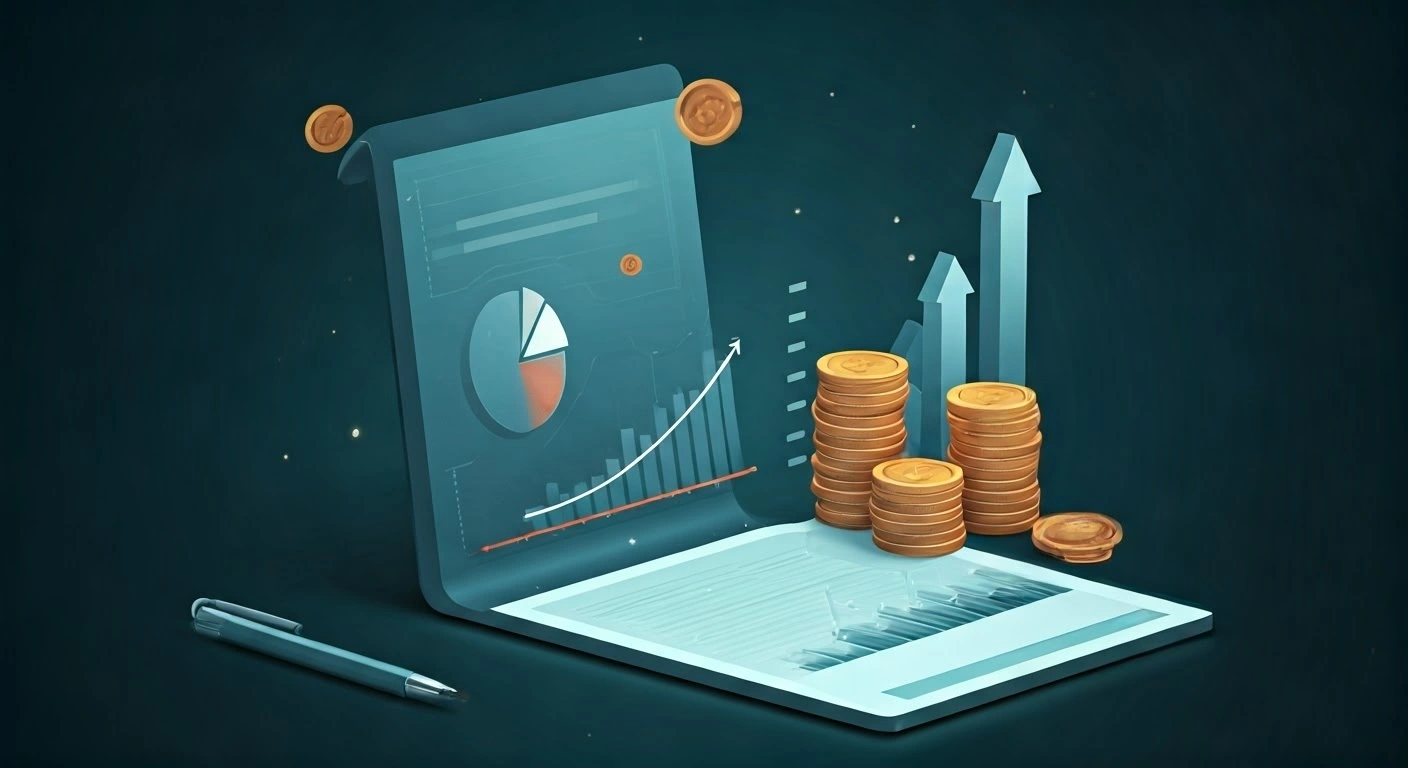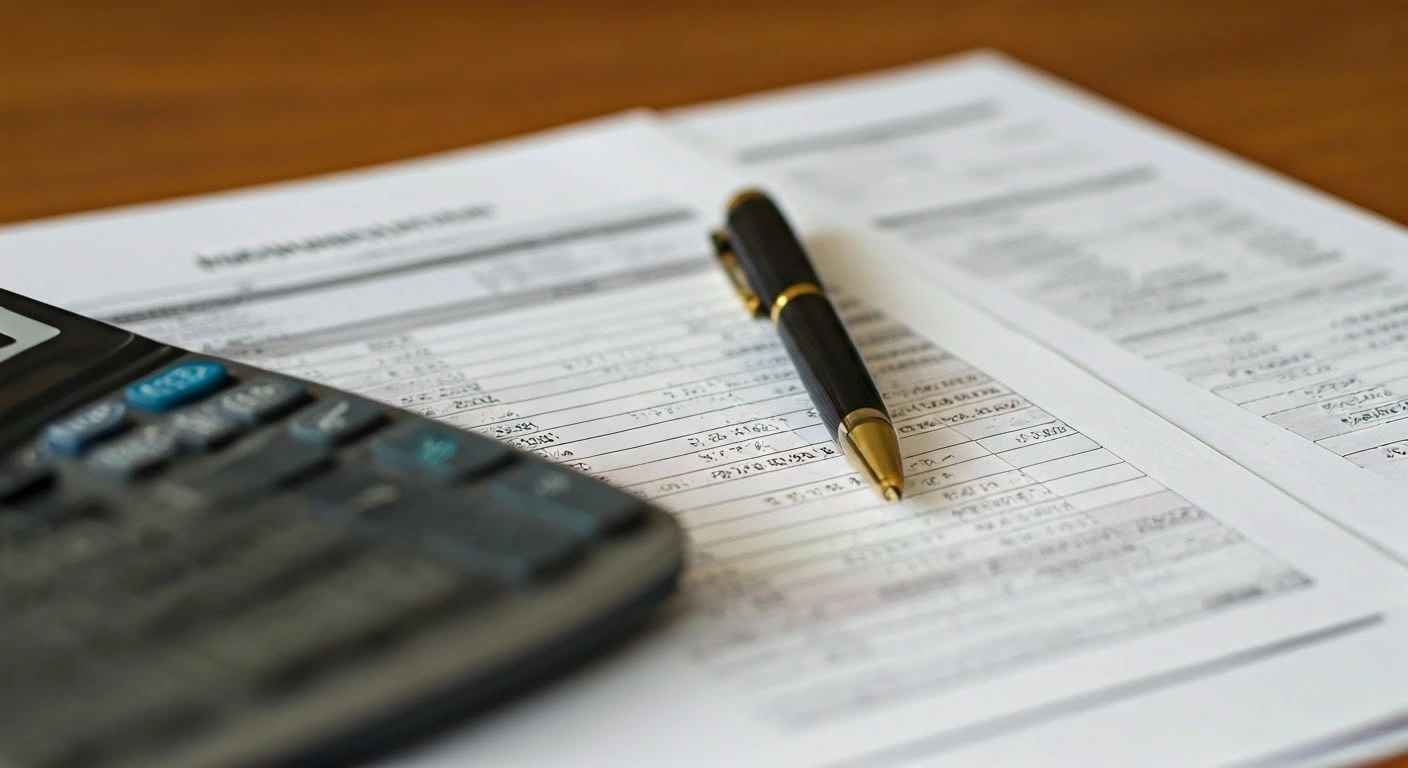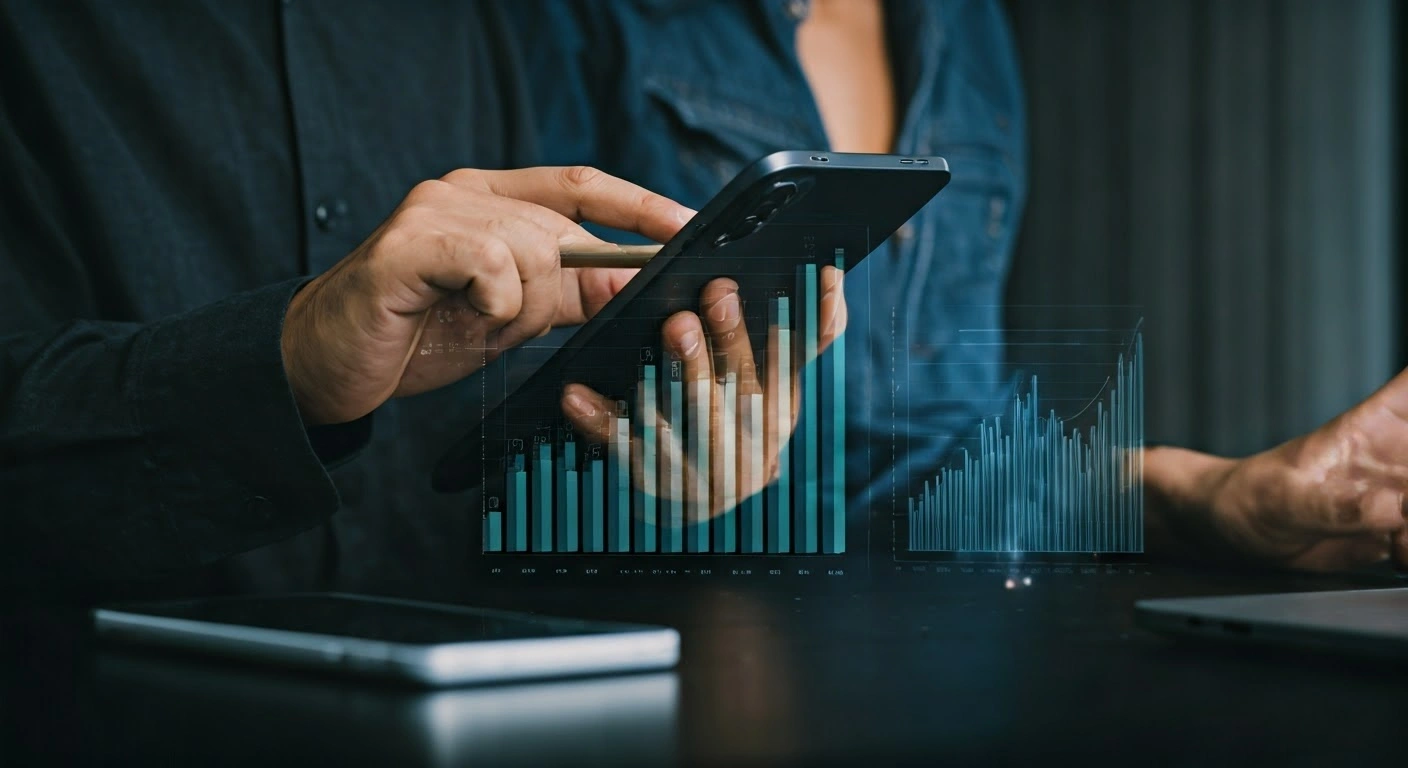Does Doordash Take Out Taxes?: Understanding Your 1099 and Optimizing Deductions
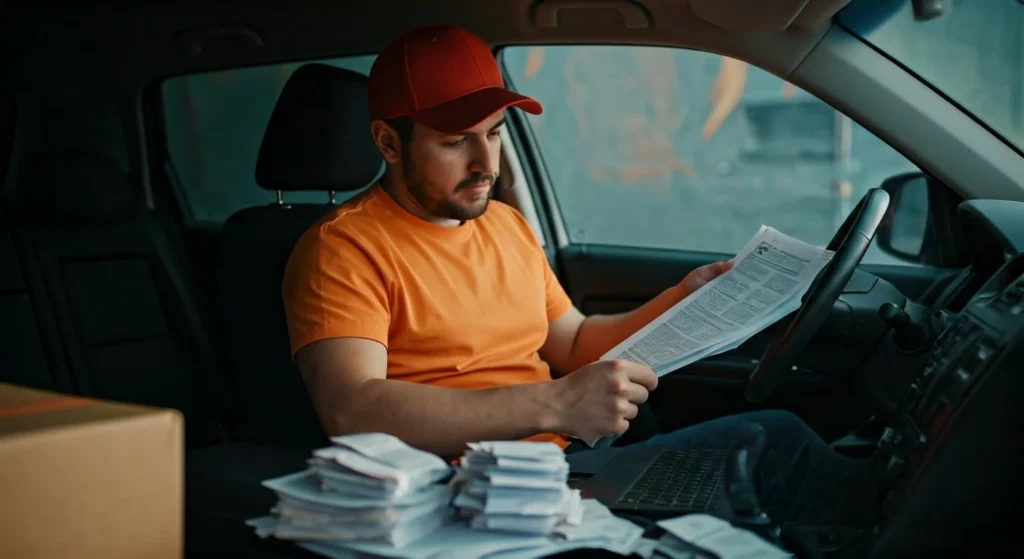
If you’re a DoorDash driver, understanding how taxes work is key to managing your earnings. One of the most common questions is, “Does DoorDash take out taxes?” The short answer is no—DoorDash doesn’t withhold taxes from your pay. This means you’re in charge of handling your taxes yourself.
But don’t worry, it’s not as complicated as it sounds. In this guide, we’ll break down everything you need to know, like the DoorDash tax percentage and how deductions can help lower your tax rate. Whether you’re asking, “Will I get a 1099 from DoorDash?” or wondering, “What happens if I don’t pay my DoorDash taxes?” we’ve got clear answers to help you navigate it all.
With the right information and a little planning, you can stay on top of your taxes, take advantage of deductions, and make the most of your earnings. Let’s dive in!
Key Highlights
- As an independent contractor with DoorDash, you’re responsible for paying both income taxes and self-employment taxes on your earnings.
- DoorDash provides a 1099-NEC form that details your income, which you’ll need when filing your taxes.
- You may need to make estimated quarterly tax payments throughout the year to avoid penalties,
- Keeping accurate records of your mileage and expenses is crucial for maximizing your deductions.
Consulting a tax professional can help you file correctly and take advantage of all eligible deductions.
Does Doordash Take Out Taxes?
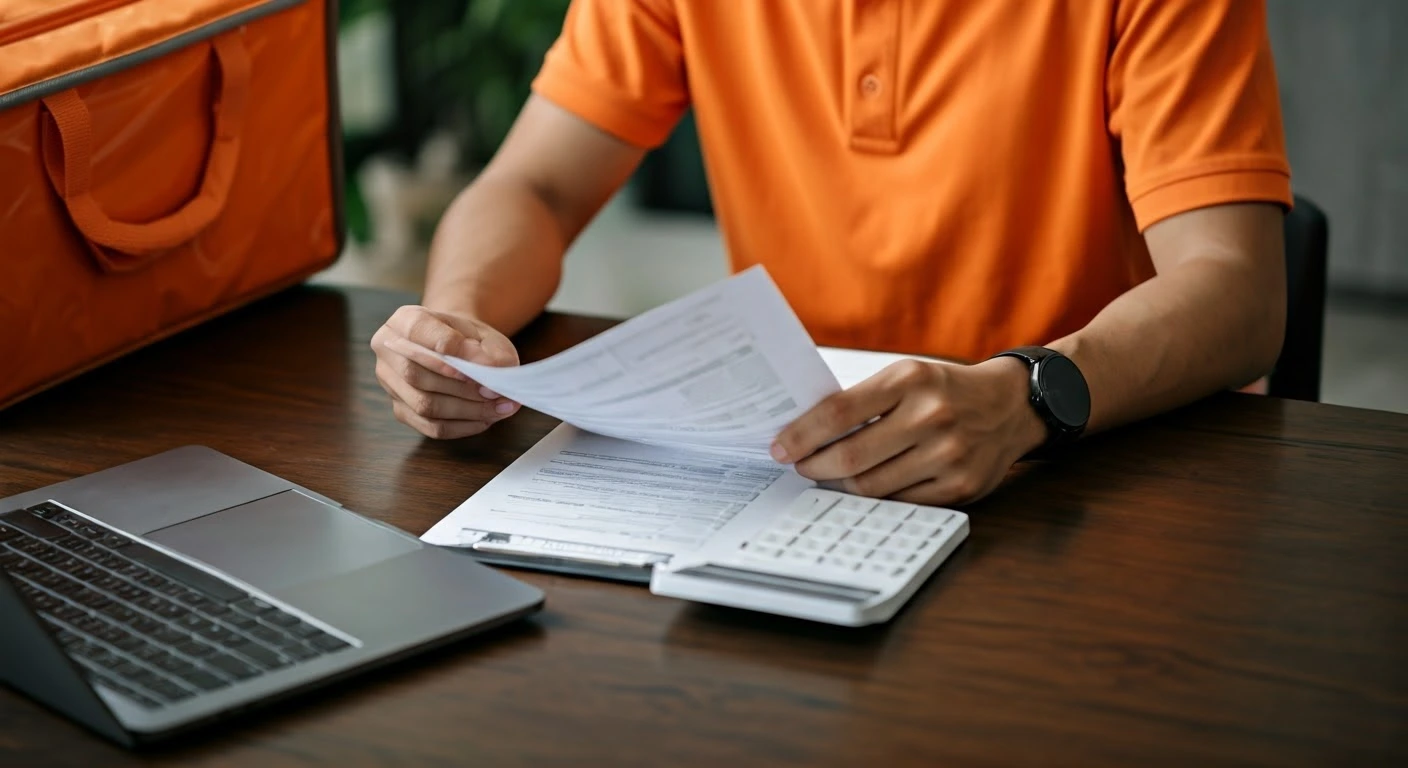
Tax time? Make it simple! Understand your 1099, track deductions, and stay ahead as a Doordash driver. Smart tax prep means more savings for you!
As a DoorDash driver, you have the flexibility to set your schedule and the opportunity to earn a significant income. However, it’s important to understand that DoorDash does not take out taxes from your earnings. Unlike a traditional job where taxes are automatically withheld, you are responsible for managing your tax obligations as an independent contractor.
This means setting aside money for both federal and state income taxes, as well as self-employment taxes, which cover Social Security and Medicare contributions. To avoid penalties, knowing how estimated taxes work is crucial, as you may need to pay your own taxes and make quarterly payments to the IRS based on your earnings. Understanding your tax responsibilities can help you stay compliant and keep more of your hard-earned money.
What is the tax process for drivers working with Doordash?
As a DoorDash driver, understanding your tax obligations is crucial since you’re considered an independent contractor rather than an employee. This means DoorDash does not take taxes out of your earnings, making you responsible for reporting your income and paying taxes directly to the IRS.
Properly managing your 1099 tax form and keeping track of eligible deductions can help you file your taxes accurately and maximize your tax savings. Knowing how DoorDash taxes work ensures you’re prepared and can make the most of your earnings.
Comprehending Your 1099 Form
If you’ve earned more than $600 with DoorDash in a year, you’ll get a 1099-NEC form from DoorDash. You can easily access this through your Stripe Express account. This form shows your total earnings, including base pay, tips, and any bonuses you’ve received.
Take a moment to review your 1099 form carefully. Make sure all the information—like your earnings and personal details—is correct. If you spot any mistakes, don’t hesitate to reach out to DoorDash to fix them.
It’s important to remember that the 1099-NEC isn’t your tax return. It’s a summary of your earnings that both you and the IRS use to calculate your taxes. You’ll need this form and other financial documents when filing your federal and state tax returns.
For drivers who’ve had over 200 transactions and earned $20,000 or more, DoorDash will also send a 1099-K form. This form gives a breakdown of all the income you’ve made through the DoorDash platform.
Want to dive deeper? Check out our exclusive blog to learn more about 1099 forms and how they fit into your taxes.
Determine Qualifying Deductions For Doordash Taxes
As an independent contractor, you’re eligible for a variety of tax deductions that can help reduce your taxable income. These deductions can include things like vehicle expenses, fuel costs, and other necessary business expenses. One of the key deductions for delivery drivers is the standard mileage deduction. Every year, the IRS sets a standard mileage rate, which allows you to save on vehicle-related costs based on how many miles you drive for business. You can either use this rate or track your actual vehicle expenses. It’s crucial to keep detailed mileage logs to back up your deduction.
Here’s a breakdown of some of the potential DoorDash tax deductions you might qualify for:
| Category | When You Can Claim It | What You Can Deduct |
|---|---|---|
| Vehicle Expenses | If you don’t opt for the standard mileage deduction. | Up to 100% of your actual vehicle expenses, like gas, maintenance, insurance, and depreciation. |
| Business Supplies | If you buy items needed for your DoorDash business. | Full cost of essential supplies like insulated bags, phone mounts, chargers, and anything else you use for work. |
| Self-Employment Tax Deduction | If you earn $400 or more from DoorDash. | You can deduct up to 50% of the self-employment taxes you’ve paid. |
| Home Office Deduction | If you use part of your home for work. | A portion of home expenses such as rent, mortgage interest, utilities, and insurance, if used for your DoorDash business. |
| Start-Up Costs | If you’re just starting out. | You can deduct up to $5,000 in start-up expenses, if you meet certain conditions. |
| Qualified Business Income Deduction | For pass-through businesses (e.g., sole proprietorships). | Up to 20% of your qualified business income, depending on your earnings and other factors related to business use. |
| Health Insurance Deduction | If you’re paying for your own health insurance. | You can deduct up to 100% of premiums paid for health insurance for you and your family. |
| Earned Income Tax Credit (EITC) | If you qualify based on income and family size. | Up to $6,935, depending on your income and the number of children in your household. |
| Education Tax Credits | For education expenses like tuition or fees. | Up to $2,500 for individual taxpayers, or $5,000 for married couples for qualifying education expenses. |
| Child Tax Credit | For children under 17. | Up to $2,000 per eligible child. |
| Retirement Plan Contributions | If you contribute to a qualifying retirement plan. | The amount you contribute up to the annual limit, depending on the retirement plan you use. |
| Research and Development (R&D) Credit | If your business is involved in R&D activities. | Up to 20% of qualifying research and development expenses. |
| Clean Vehicle Credit | If you purchased an electric vehicle. | Up to $7,500 if you bought a qualifying electric vehicle. |
| Home Energy Credits | For energy-efficient home improvements. | Expenses for eco-friendly upgrades like solar panels, energy-efficient windows, or heat pumps. |
Remember, keeping detailed records of both your income and expenses is essential to maximize your deductions and ensure your tax return is accurate. Tracking your deductions throughout the year will help you avoid any surprises come tax time and ensure you’re not leaving any money on the table.
A Comprehensive Guide to Filing Taxes Step-by-Step
Filing taxes as a Doordash driver might feel like a big task, but you can handle it without stress with a little organization and the right steps. The key is to stay on top of your financial records and gather everything you’ll need, including your 1099-NEC form and mileage logs. Plus, don’t forget to save your receipts for any deductible expenses.
Step 1: Organize Your Financial Records
Having your records in order is a huge help when it’s time to file. It makes sure you don’t miss out on any potential tax deductions. Here’s what you need to do:
- Collect your financial documents, like your Doordash earnings, business expenses, and the 1099-NEC form from Doordash.
- Track your mileage—you can choose between the standard mileage rate or the actual expense method to save on taxes.
- Hold onto receipts for expenses like gas, vehicle maintenance, and any equipment you buy for work.
- Keep your receipts, invoices, and bank statements organized to support the deductions you claim.
- Store everything in a way that makes sense so you can easily find what you need when it’s time to file.
Step 2: Determine Your Taxable Income
Now that you’ve gathered your records, it’s time to figure out your taxable income:
- Start with your gross income, which is the total money you earned from Doordash (you’ll find this on your 1099-NEC).
- Subtract your eligible business deductions and expenses to calculate your taxable income.
Step 3: File Your Taxes
Once your records are in order and your taxable income is calculated, it’s time to file:
- Use Form 1040 to file your taxes. If you’re unsure about anything, tax software is a great option to walk you through the steps and ensure everything is filed correctly.
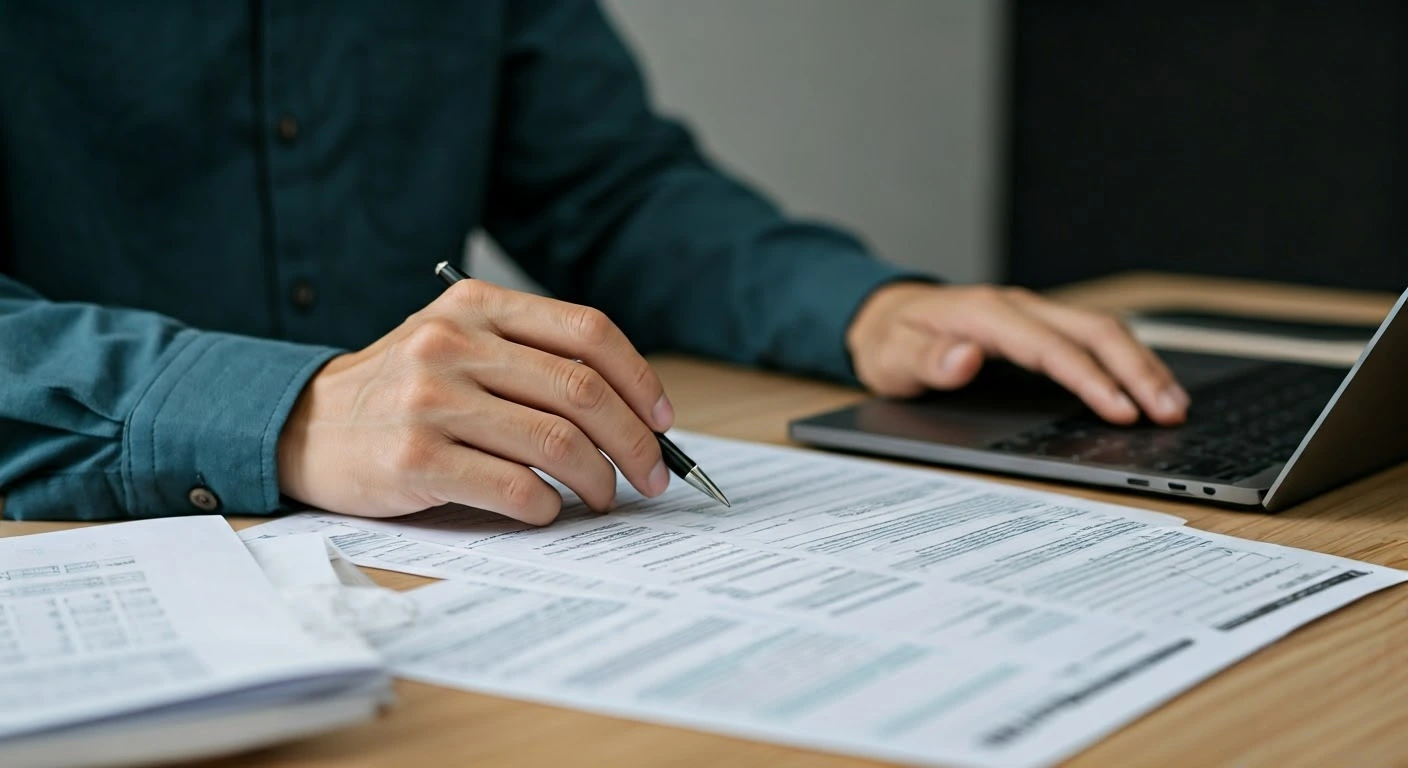
Filing taxes as a freelancer? 📄✨ Get to know your Form 1040, maximize deductions, and stay stress-free this tax season!
When Should I Submit My Doordash Tax Payments?
As an independent contractor, you’re responsible for paying your taxes throughout the year. Since Doordash does not withhold taxes from your earnings, setting aside a portion of your income for tax payment is essential. Consider making quarterly estimated tax payments to avoid a hefty tax bill at the end of the year. This helps you stay on top of your tax obligations and avoids underpayment penalties.
Consequences of Not Paying Taxes for Doordash
Failing to pay taxes on your Doordash income can result in penalties and fines from the IRS. It’s critical to report all your earnings accurately to prevent legal issues. Taking advantage of tax credits and deductions and seeking professional tax advice can reduce your tax liability and possibly increase your refund. Keeping detailed records of your income and expenses ensures compliance with tax laws and helps streamline the filing process.
Utilize Tax Software or Seek Professional Advice
Managing your taxes on your own can be tricky, and that’s where an experienced accountant can make all the difference. They can help you avoid penalties, tackle any complex tax issues, and ensure you’re claiming all the tax deductions you’re eligible for. Plus, they’ll offer helpful tips to reduce your tax liability moving forward.
At ForMyTax, we get it—you’d rather focus on growing your business than stressing over bookkeeping and taxes. That’s why we’ve made it easy to connect with trusted CPAs and EAs who will take care of all the heavy lifting for you. From keeping your records straight to making sure your taxes are filed on time, we’re here to help simplify your financial life and give you peace of mind.
Tips To Maximize Your Deductions
As an independent contractor, maximizing your tax deductions is important to keep more of your earnings. One key area to focus on is your business mileage—make sure you’re tracking every mile.
Don’t forget to keep a record of all your business-related expenses, even the small ones. Every dollar you deduct helps reduce your taxable income, which can result in a smaller tax bill for you at the end of the year.
Typical Deductions for a Dasher
Understanding the common tax deductions for Doordash drivers is crucial for saving money. One of the most frequently used deductions is the mileage deduction, which allows for specific deductions based on work-related travel. You can subtract a set amount for every mile you drive exclusively for work purposes. This includes the miles you drive to pick up orders, deliver food, and travel to and from busy areas.
If you use your vehicle for personal and business purposes, tracking your business miles accurately is essential. You can choose to use the standard mileage rate or deduct your actual expenses. The best option depends on your unique situation.
Other tax deductions to consider include:
- Tolls and Parking Fees: Keep track of any tolls or parking fees you pay while making deliveries for Doordash.
- Cell Phone and Data Plans: You can deduct a portion of your phone bill if you use it for work-related purposes.
- Car Washes and Cleaning Supplies: As a Doordash driver, keeping your vehicle clean is important. You can deduct expenses for car washes and cleaning supplies.
Tips for Tracking Mileage and Expenses
Tracking your mileage and expenses helps you maximize your tax deductions and makes filing taxes easier. Here’s how to stay organized:
- Use mileage tracking apps: Automatically track your business miles and label trips as work-related.
- Keep your receipts: Save receipts for fuel, car washes, and any other business expenses.
- Use accounting tools: Use simple software or spreadsheets to track your income and expenses.
Staying organized makes it easier to claim deductions and file your taxes correctly.
Summary
You’ve probably better understood questions like “Does Doordash take out taxes?” or “Do Doordash drivers have to pay taxes?” by now. As a Doordash driver, it’s important to know how to file your taxes properly so you can take advantage of deductions and avoid any issues with the IRS. Make sure to get comfortable with reading your 1099 form and look out for every possible tax deduction. Keep track of all your business expenses, and consider using tax software or getting help from a professional if needed. With some preparation and some knowledge of tax terms, you’ll be ready to breeze through tax season without stress.
Need help with Doordash taxes? ForMyTax Can Assist You
Not sure how to stay on top of your records or how taxes affect you? We’ve got you covered! ForMyTax connects you with experienced CPAs and EAs who will care for your taxes and finances so you don’t have to. No more worrying about spreadsheets – you can focus on what really matters to you. Reach out today for friendly, expert advice!
Frequently Asked Questions
Yes, Doordash typically sends out 1099 forms by January 31st each year. You’ll receive an email from Stripe Express, Doordash’s payment processor, with instructions on how to access your tax information. Alternatively, you can log into your Stripe Express account to download your 1099 form for the relevant tax year. Be sure your SSN or EIN is correctly linked to your Doordash account to ensure you receive the right documents.
No, Doordash does not withhold taxes. As an independent contractor, you report your Doordash income and pay your taxes. You may also need to make quarterly estimated tax payments if your earnings reach a certain threshold.
Yes, as a Doordash driver, you are self-employed and must report and pay taxes on your earnings. This includes both income tax and self-employment tax. It’s essential to track your earnings, expenses, and any potential deductions throughout the year to ensure you’re ready to file your taxes correctly and on time.
As a Doordash driver, you can save money by claiming deductions on business mileage and vehicle costs. You can choose between the standard mileage deduction or the actual expense method, depending on which gives you the best tax benefit. Additionally, you can deduct other work-related expenses like tolls, parking fees, and even a portion of your phone and internet bills if you use them for your business.
Since you’re working as a self-employed driver, you’re responsible for paying taxes on your Doordash income. Keeping track of your earnings, expenses, and deductions throughout the year is important to stay prepared. Taxes are usually due by April 15th, though the exact deadline might change. If you earn enough, you may also need to make estimated quarterly tax payments to avoid penalties at the end of the year.
Yes, as an independent contractor for Doordash, you’ll need to file your taxes every year by the tax deadline (typically April 15th). You’ll report your income on Form 1040 and Schedule C. While it’s entirely possible to file on your own, working with a CPA can make things much smoother, especially if you want to be sure you’re getting the most out of your deductions and staying on top of your tax obligations.
You’ll report your Doordash income on Schedule C of your Form 1040 when you file your taxes. This form is where you’ll total your business income and any deductions, helping you figure out your taxable income for the year. After this, you’ll need to input your business profit on Schedule SE, which is an essential step in ensuring you’re only taxed on the income you actually made after expenses.
Doordash drivers pay income tax based on their earnings and location. Additionally, there’s a self-employment tax of 15.3% for Social Security and Medicare taxes. Keep track of your income and deductions to help reduce your taxable amount.
If you don’t report your Doordash income, you could face penalties, fines, or even legal trouble. It’s really important to be honest and accurate with your taxes to avoid any unnecessary stress or complications. Staying on top of your earnings helps you stay compliant and keeps things running smoothly.
Popular Blogs
 W9 Form: Request for Taxpayer Identification Number – Know What is a Form W-9, Who Needs It and How to Fill It Out
W9 Form: Request for Taxpayer Identification Number – Know What is a Form W-9, Who Needs It and How to Fill It OutNavigating IRS tax forms can be difficult. This is true…
Read More » 1099-NEC Simplified: Filing Requirements & Tax Compliance for the Upcoming Season
1099-NEC Simplified: Filing Requirements & Tax Compliance for the Upcoming SeasonNavigating income taxes can be tricky. This is especially true…
Read More » Beginner’s Guide to Self-Directed IRA Rules and Regulations: Exploring Investment Options and Custodians
Beginner’s Guide to Self-Directed IRA Rules and Regulations: Exploring Investment Options and CustodiansAre you looking for ways to grow your retirement savings…
Read More »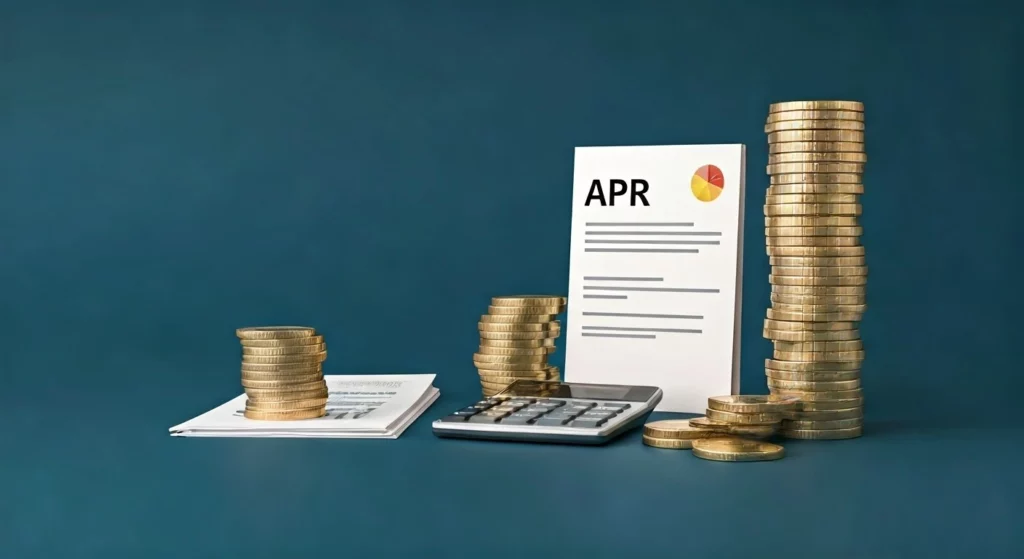 What Is APR: Types & Calculation Simplified
What Is APR: Types & Calculation SimplifiedWhen looking for a business loan, understanding APR (Annual Percentage Rate) is…
Read More »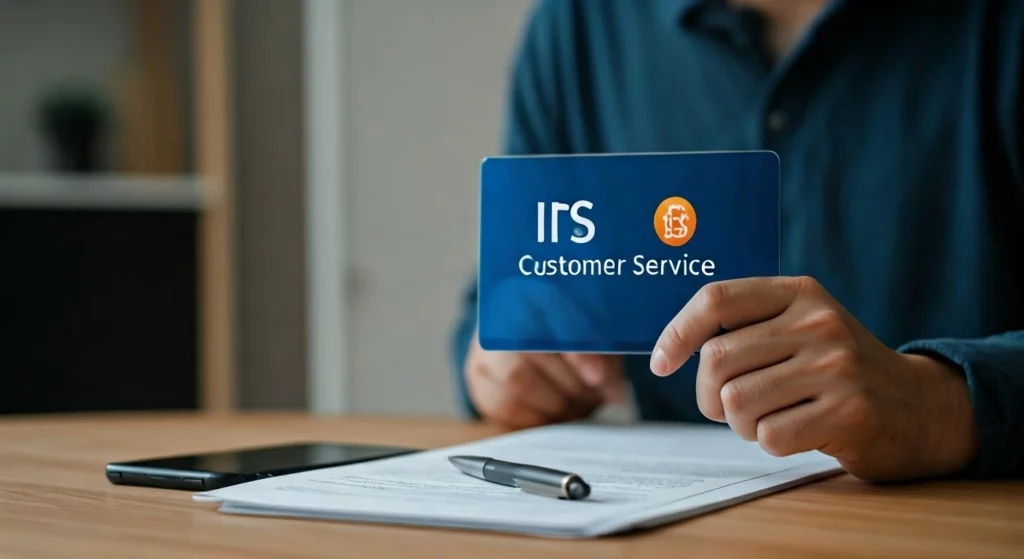 Contacting the IRS: To Receive Help, Call IRS Customer Service and Speak With an Agent
Contacting the IRS: To Receive Help, Call IRS Customer Service and Speak With an AgentNavigating the tax system can be overwhelming, but connecting with…
Read More » Unlocking the Importance of Accounting for Business Growth: Navigating Financial Success
Unlocking the Importance of Accounting for Business Growth: Navigating Financial SuccessAccounting is crucial for business success, influencing key decisions and…
Read More »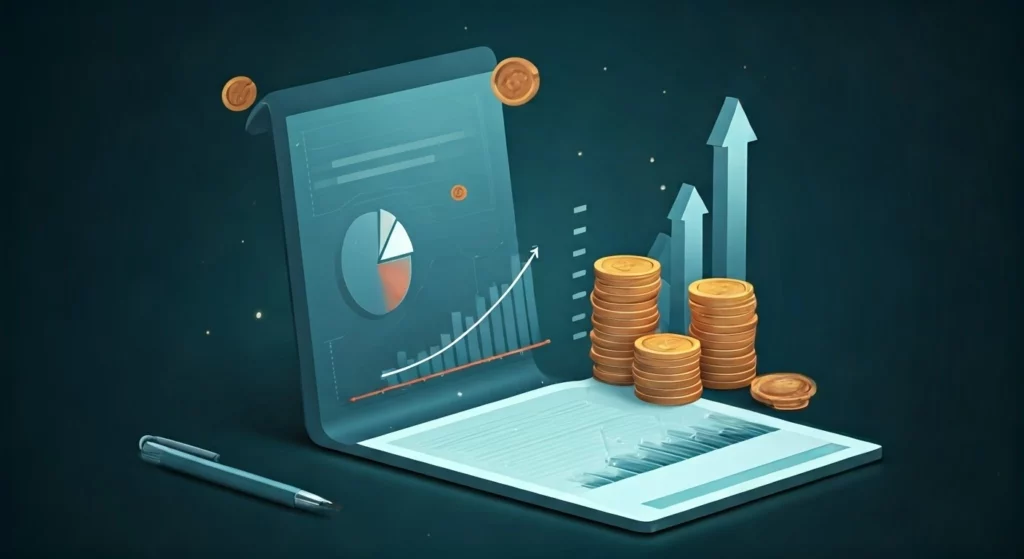 Income Statement Explained: Meaning, Importance, and Examples for Your Business Success
Income Statement Explained: Meaning, Importance, and Examples for Your Business SuccessWondering how an income statement can help you track your…
Read More »
Related Blogs
Navigating IRS tax forms can be difficult. This is true if you don’t know much about the different types and what they
Navigating income taxes can be tricky. This is especially true for small business owners that hire independent contractors. Companies must report payments
Are you looking for ways to grow your retirement savings and increase your financial future? A Self-Directed IRA (SDIRA) might be the
When looking for a business loan, understanding APR (Annual Percentage Rate) is essential. It shows the full cost of borrowing, factoring in the interest
Navigating the tax system can be overwhelming, but connecting with IRS customer service can help clear up any confusion. Whether you need
Accounting is crucial for business success, influencing key decisions and driving profitability. Understanding the importance of accounting in organizations helps business owners
Wondering how an income statement can help you track your business’s financial health? This essential financial statement gives you a clear picture
In financial accounting, it is important to understand financial statements. A major part of this is about liabilities. They are the debts
In business, it is very important to know how your company is doing financially. Year-over-year (YOY) growth analysis is a key performance
Picture this: you’re sitting down to do your taxes, and you’ve got your Form W-2 in front of you. But then you
FORMYTAX.COM
Providing quick and personalized support is our mission. Our U.S. based support team is committed to providing excellent service in every time zone. We're always willing to help!
SUPPORT
- support@formytax.com
- (888) 808-4641
-
2400 Barranca Pky, Irvine, CA 92606
14341 Clark Avenue, Bellflower, CA 90706.




